In 2021, the Forestry Administration of (FA) of Cambodia received financial support from AFoCO to organize an in-country community development training on “Community Livelihood Improvement through Seedling Production” for a forest community — Veal Okdey Forest Community — in Kampong Thom Province. The training is expected to provide the forest-based community with opportunities to improve their livelihoods while ensuring the sustainable utilization of forest resources through seedling production. This would allow the community to produce fruit tree seedlings for private plantations, wood tree seedlings for community forest restoration and rehabilitation, and an assortment of seedlings for small-scale businesses.
Carried out in three separate sessions — the first session provides the target community with the necessary skills to establish small-scale tree nursery and collect their desired seeds productively; the second session imparts knowledge on the germination and collection of seeds; and the third session teaches participants how to plant seedlings properly and care for saplings effectively.
On September 22-23, 2021, the first session on small-scale nursery establishment and seeds selection, collection, and maintenance (storage) was carried out at the target site with 14 participants, including 5 women. The two-day training consists of theoretical training on small-scale tree nursery establishment and the selection, collection, and maintenance of seeds and field observation and practices. The two topics delivered and discussed in the session include:
- Small-scale tree nursery establishment (STNE)
This topic focuses on 5 main areas including the purpose of the STNE, types, and infrastructure of the small-scale tree nursery, necessary nursery equipment and materials, media compositions and treatment, and safety while nursery establishment. - Seed selection, collection, and maintaining (SSCM)
This topic focuses on 6 areas including the selection of location and characteristics of mother trees, methods and times for seed collection, seeds processing, protection, transportation, and storage, precautions and safety when conducting the seeds collection, and biodiversity conservation and environmental protection while collecting the tree seeds.
In the theoretical segment of the training, participatory discussions (brainstorming and plenary discussion), flipchart presentations, and group discussions were utilized. The participatory discussions were organized to share and exchange the existing knowledge of the participants in relation to the topics before thorough explanations and clarifications were made through flipchart presentations. The group discussions were organized to guide the participants in field practices and actual applications after the course.
Field observations and practices were conducted to equip participants with the appropriate skills and techniques. For field observations, the participants were organized to observe 4 different seed sources, including Beung Roung 1 (BR1) for Kranhoung species, Beung Roung 3 (BR3) for Thnong species, Chheuteal Chrum (CC) for Chheuteal species, and Thmor Samleang for fruit species (cashew and longan). During the field practices, participants were tasked to establish a small tree nursery not far from the training venue and to collect the necessary soil compositions for the potting media.
As part of COVID-19 preventive measures, all participants were asked to take a rapid test and prohibited from physical contact, entering air-conditioned rooms, and visiting crowded places. Throughout the training, participants were also asked to wear a mask, stay at least 1.5m apart from one other, and wash and sanitize their hands regularly, as regulated by the Royal Government of Cambodia. For safety reasons, participants were asked not to collect the tree seeds too far from their residences, climb high trees without security equipment, collect the seeds at dangerous areas such as landmine areas, or enter protected forests without permission from managers or rangers. Moreover, they were also prohibited to slash plants or cut trees for the seeds or to collect seeds of endangered species designated by Cambodian laws and/or regulations.
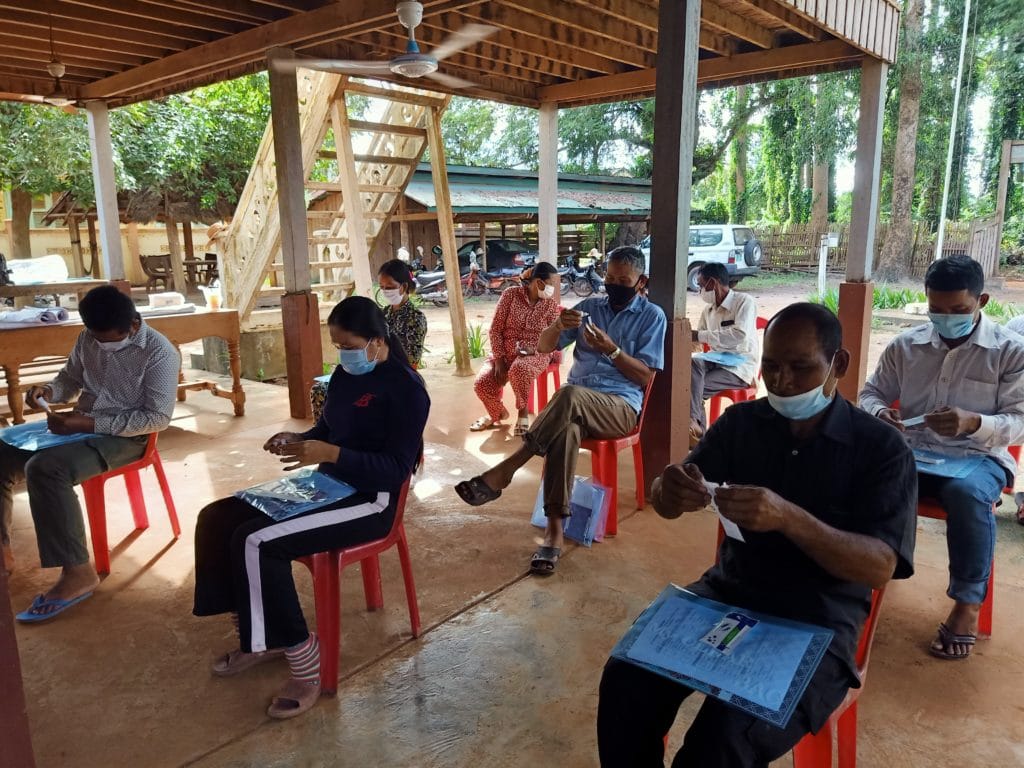
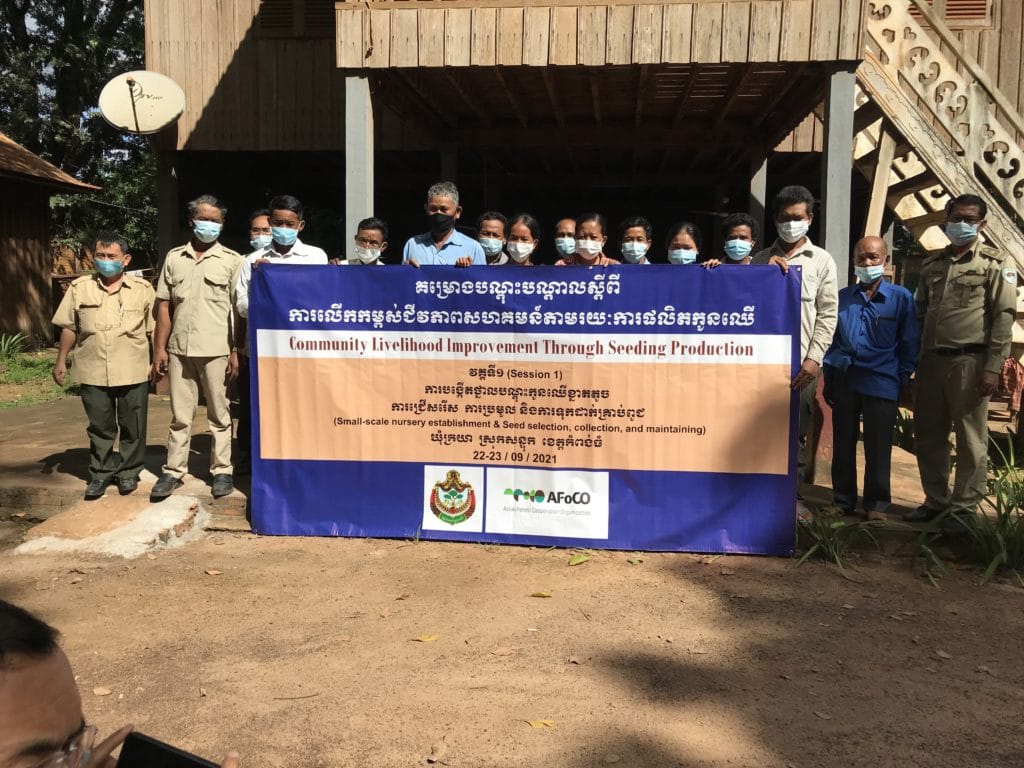
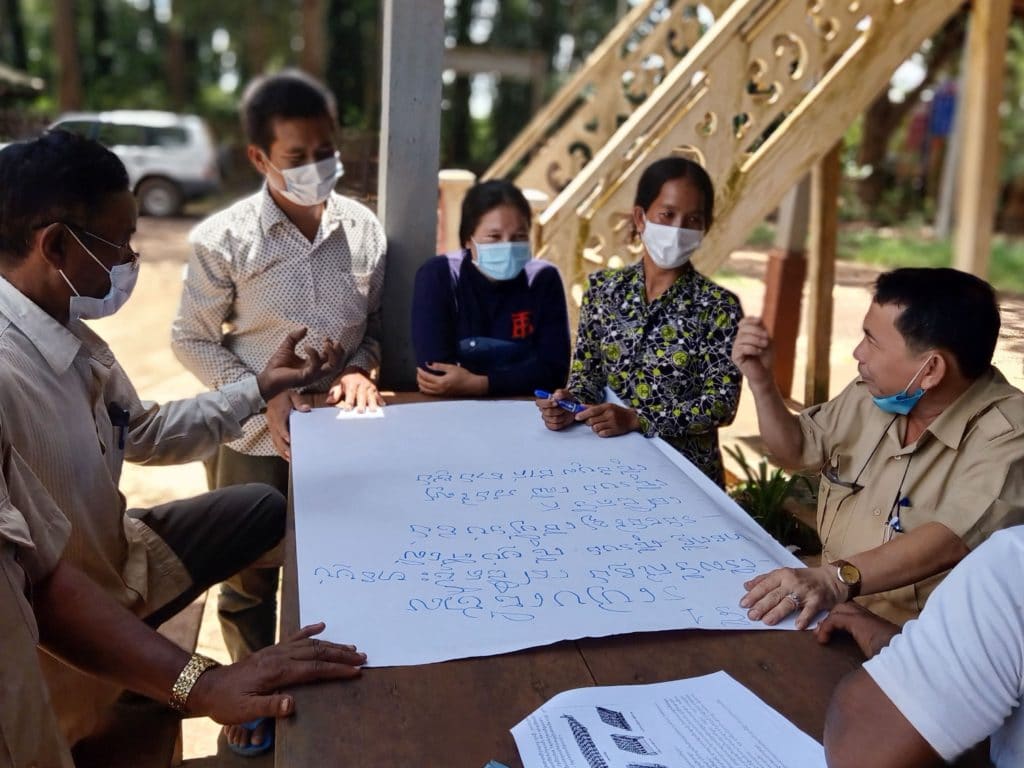
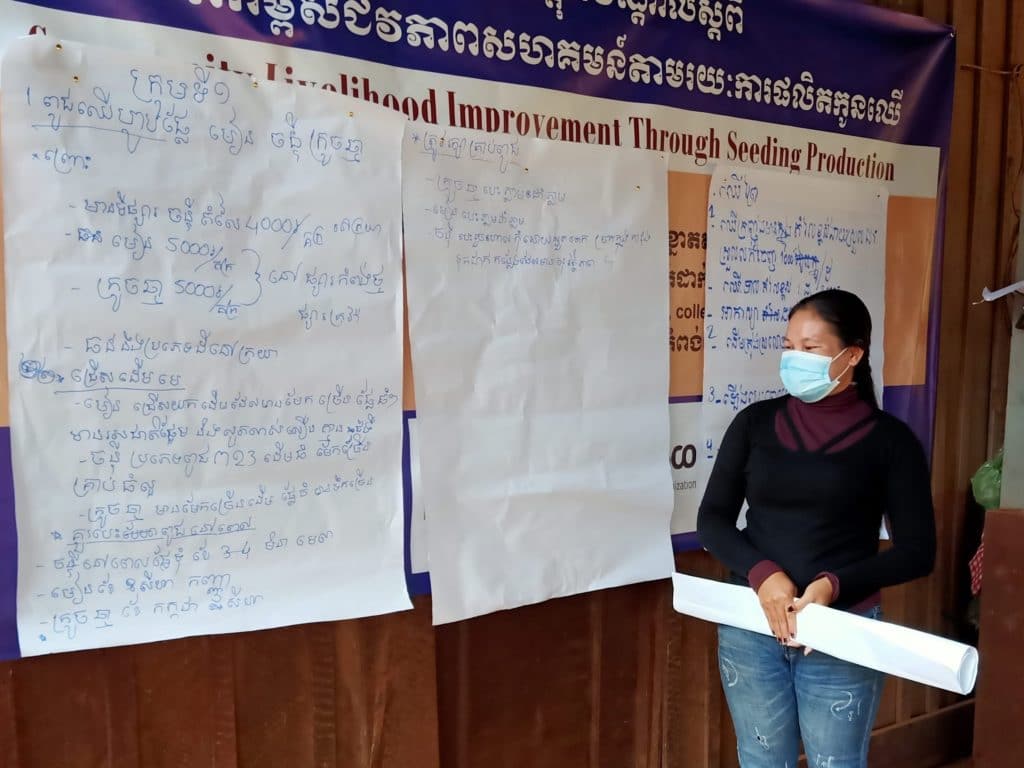
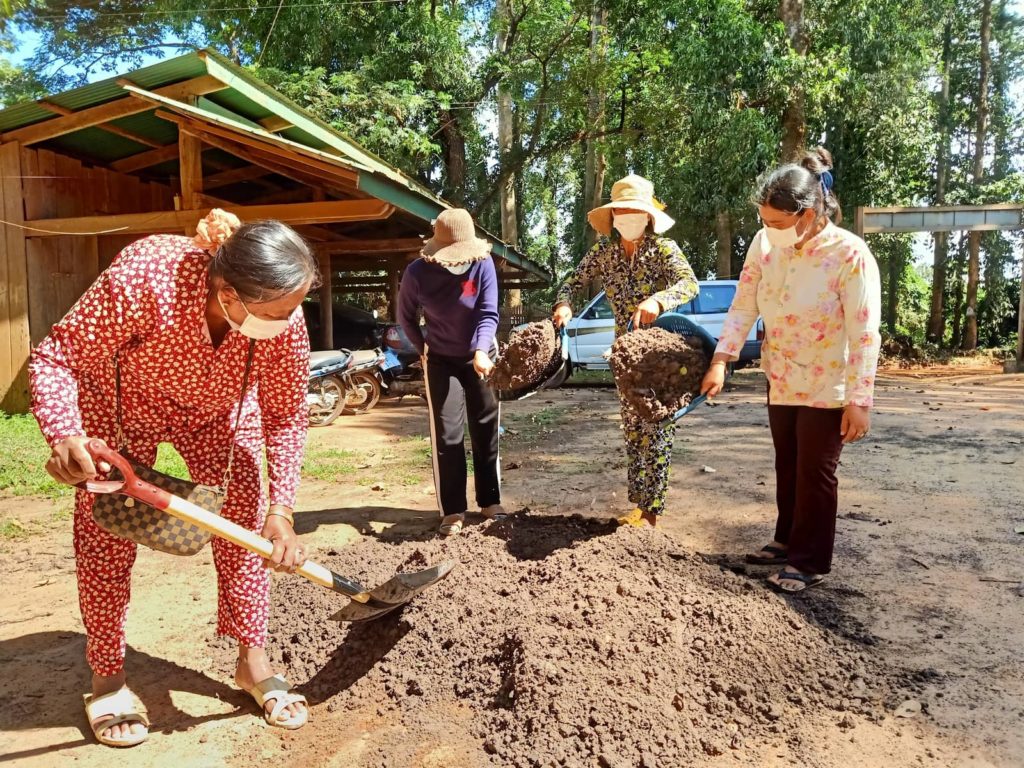
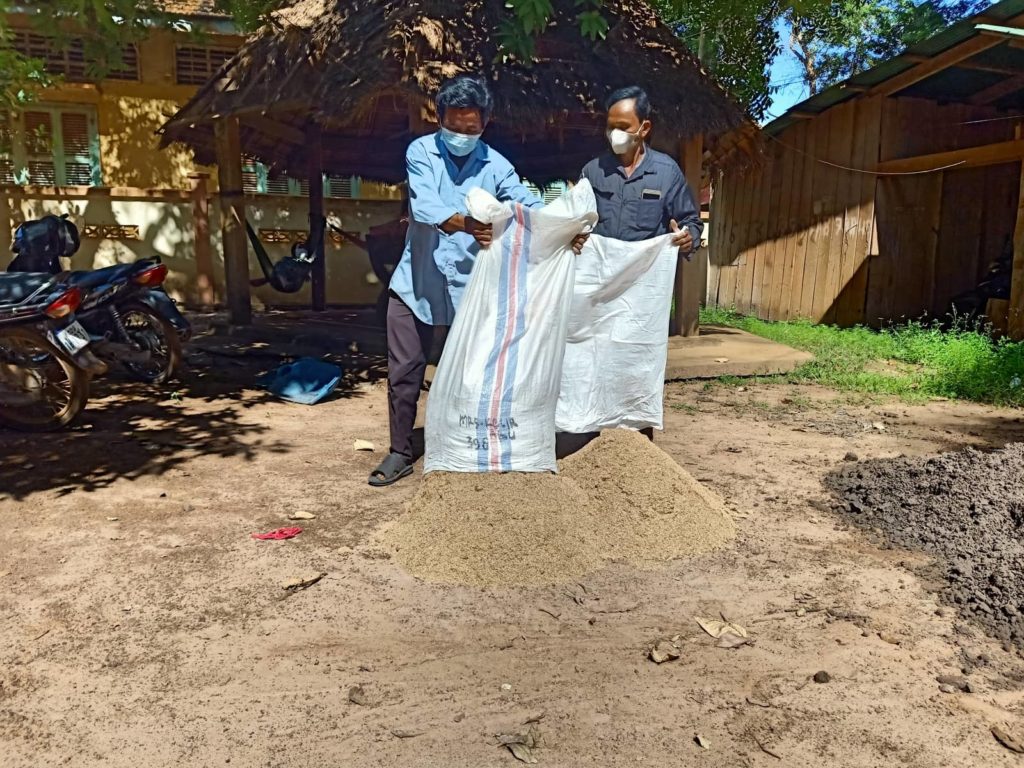
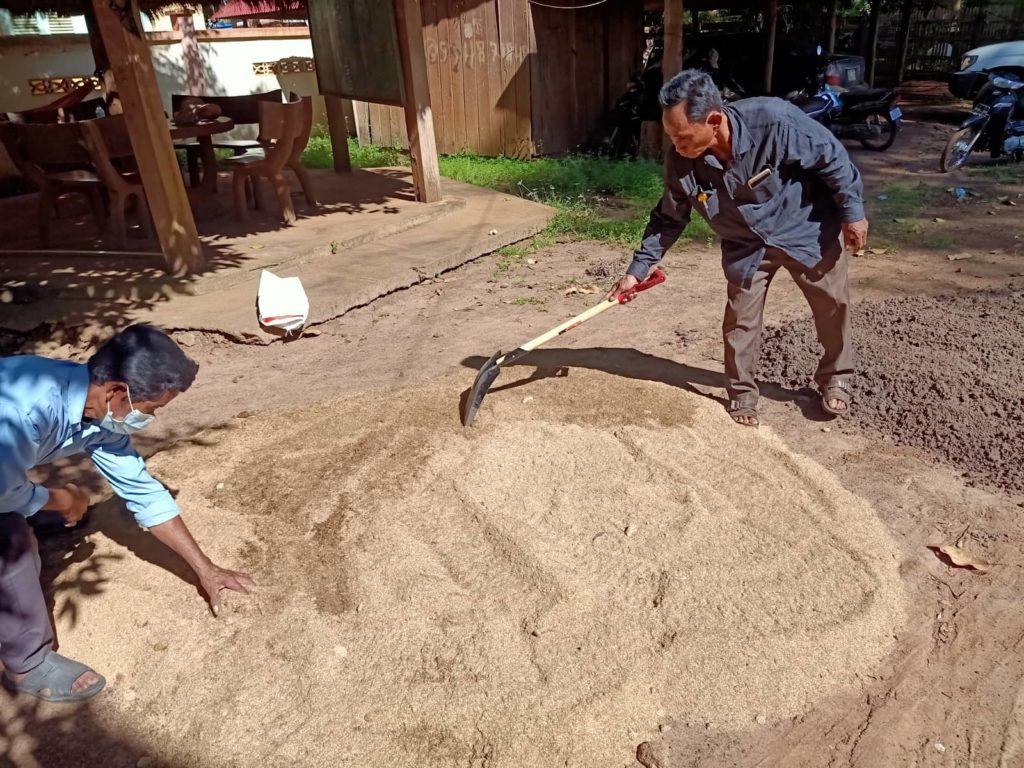
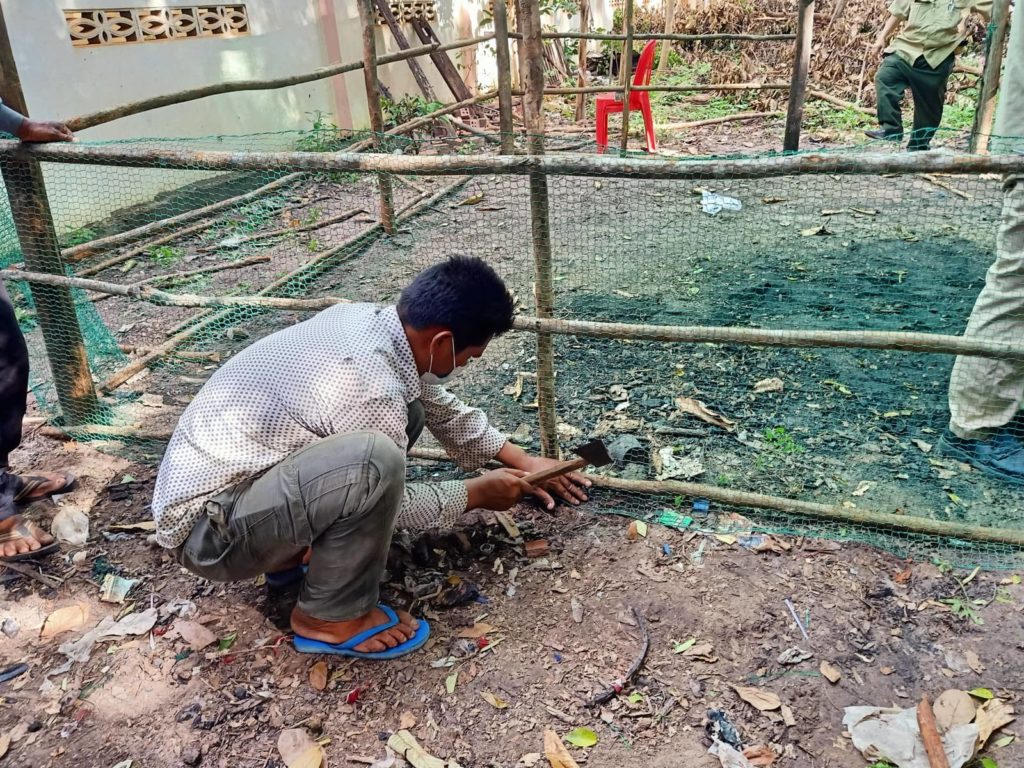
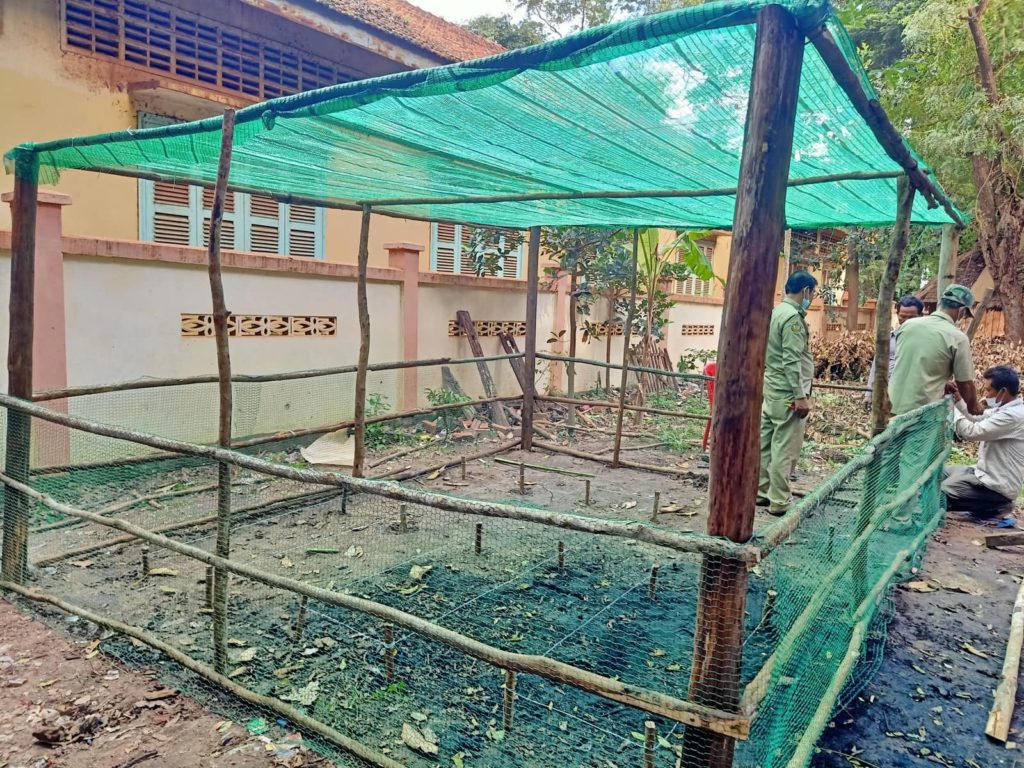
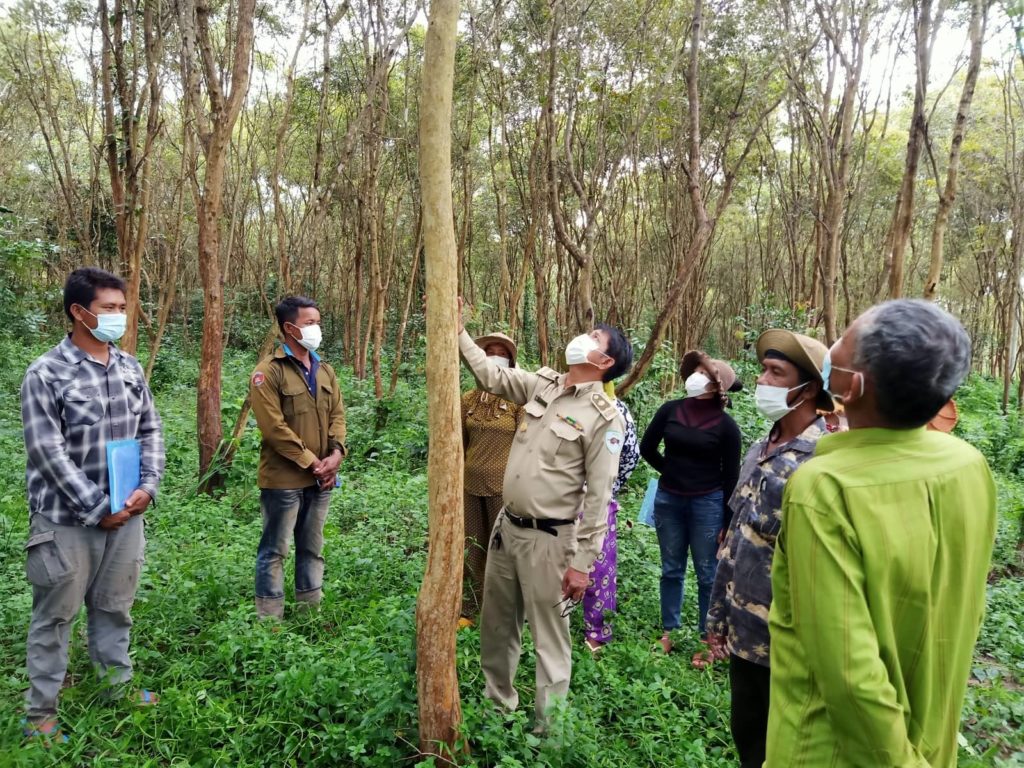
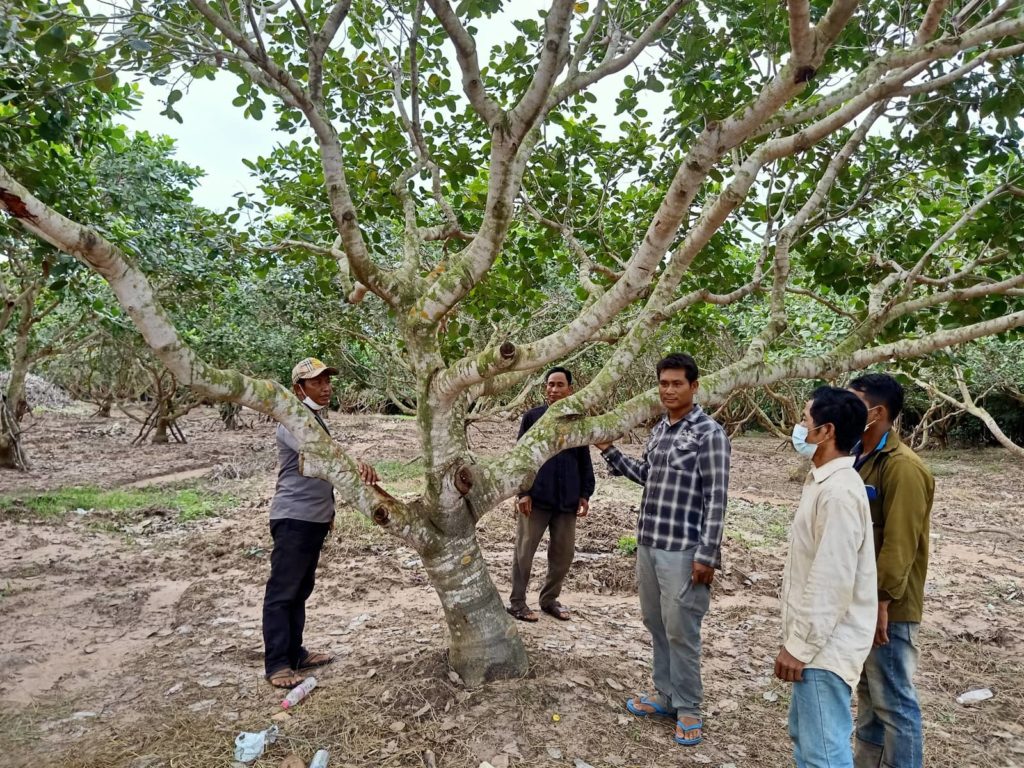
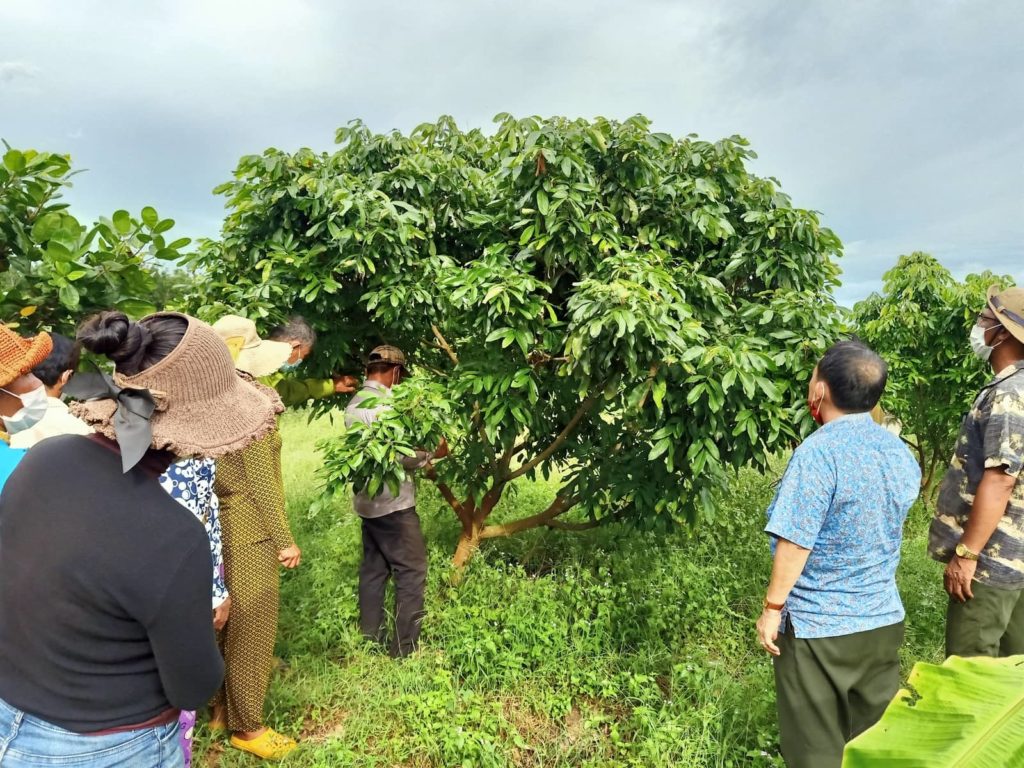
Contributed by Hem Chanrithy, Chief of Forest and Wildlife Training Center, Cambodia

